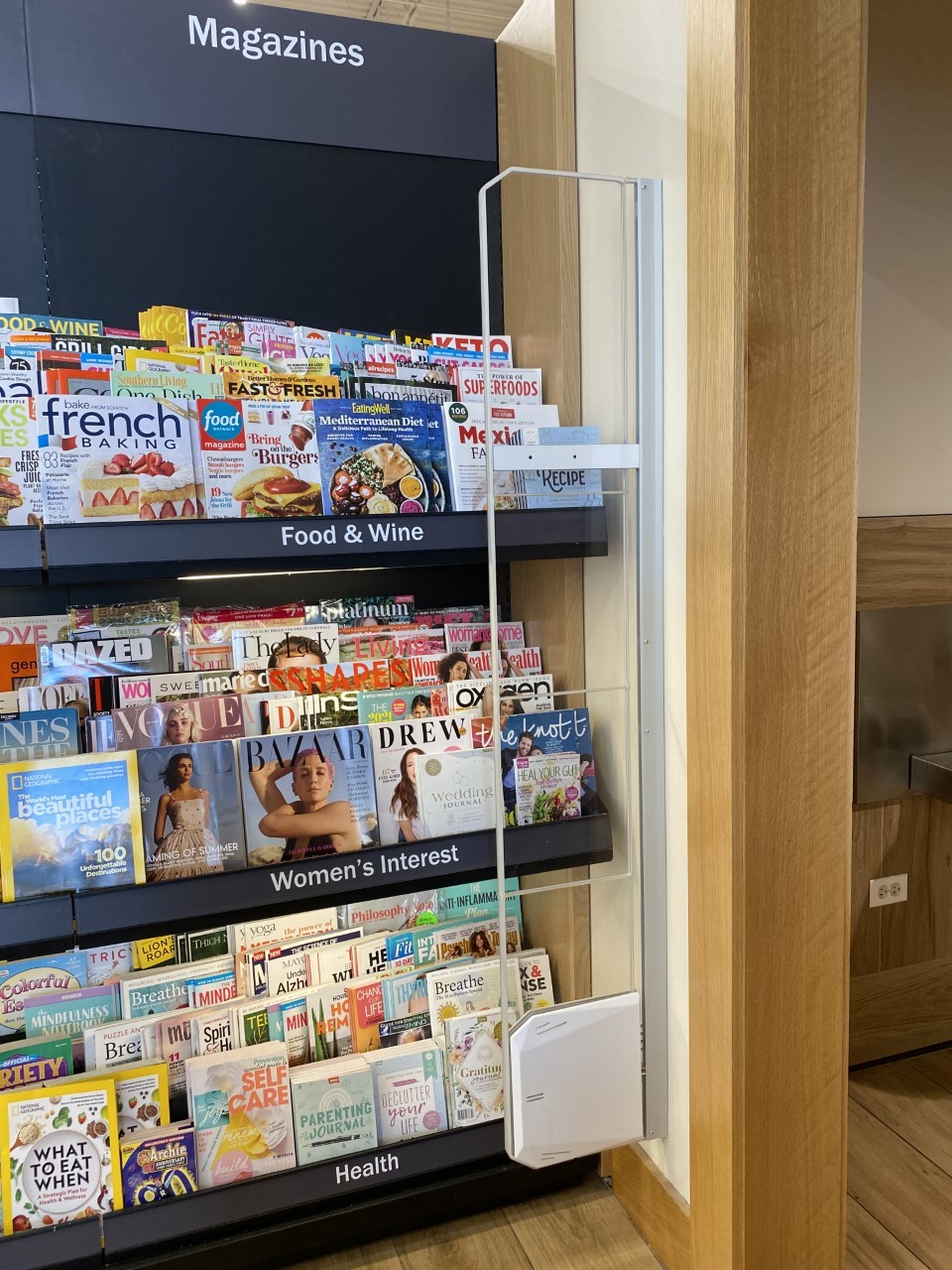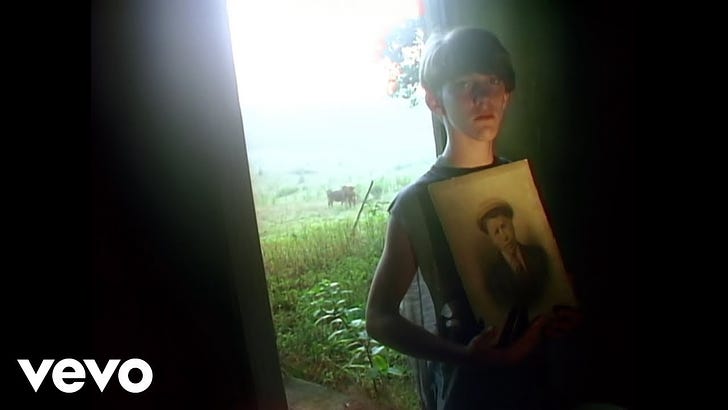A look at the world of magazine media - Issue #7
No, it really isn't the end of the world. No matter what happens with climate change, politics, technology...you pick, the earth will keep on spinning. What happens to us humans, however, is an entirely different story.
All of the odd environmental experiences we've had in the past few weeks reminded me of the early days of the magazine world's newsstand consolidation. For those of us who worked in that niche, it really felt like the end of the world. It didn't matter that there had been years of warning that the national chains were about to rebel, the powers that be just ignored it. And then it happened. And it was shattering. But it didn't matter. The world kept spinning.
OK, let's look at some articles...
#1 Nextdoor App to go public for $4.3 SPAC Merger
Nextdoor to go public in $4.3 billion SPAC merger as CEO looks toward expansion — www.cnbc.com Nextdoor CEO Sarah Friar discussed the company's plans to go public via a SPAC merger in a deal worth $4.3 billion.
Just remember, when it comes to "free" apps, if you didn't pay for it, you're the product, not the customer. OK?
What is Nextdoor useful for? I've found it helpful for recommendations and reviews. So is Yelp. But my issue with Nextdoor is the same as with Facebook, Twitter, Instagram and all the rest. They aren't really covering local news and they don't replace good local news reporting.
#2. Digitized back issues are a source of revenue for many magazine publishers.
Magazine publishers' hidden treasure trove: Digital back issues | What’s New in Publishing | Digital Publishing News — whatsnewinpublishing.com A recent press release that landed squarely on the newsdesk of What’s New in Publishing confirmed what many magazine insiders already know – namely, magazine back issues are a fertile source of revenue for publishers willing to make them easily available. The press release in question belongs to Readly, the digital subscription service that gives …
The What’s New in Publishing team takes a look at some recent comments from magazine publishers and the app, Readly about the growth and potential of digitizing your back issues as a revenue stream.
One the one hand, I like that these types of articles are gaining traction. On the other hand, the cynic in me wants to point out that many of us in publishing have been pointing in this direction for a rather long time (Like, 11 years or more?).But I guess if it gathers the attention of someone and that person calls a meeting and then everyone huddles around the conference room and the back catalog goes up on the web? Well, that’s a win.
#3 In which I merrily went down the rabbit hole of "The Bold Type" and the Portrayal of Magazine Publishing on TV
Perspective | How ‘The Bold Type’ went from an irresistible feminist fantasy to an out-of-touch disappointment — www.washingtonpost.com The final season of Freeform's dramedy "The Bold Type" was an unmitigated disaster marred by rushed story lines and one final affront to its most underserved character.
'The Devil Wears Prada' and the Myth of the One and Only "Big Break" — www.harpersbazaar.com The iconic film reflects a bygone era that glamorized hustle culture and laid the groundwork for the girlboss archetype.
I still am not so sure how I went down this rabbit hole, but the recent series finales of both Younger (Book Publishing) and The Bold Type (Alleged Magazine Publishing) ended television's most recent attempts to show what life in publishing is like.
As for Younger, I’ll watch anything with Sutton Foster in it. My experience with the book publishing world is limited to a very small paperback house many years ago. But my guess is that it doesn't quite work the way it was portrayed.
The Bold Type was more in my wheelhouse - with the exception of the fact that I'm a dude and have never worked for a NYC based publisher. And while I mostly enjoyed the early series episodes, as near as I can tell, there is only one time where the show actually reflected my life in the magazine world.
Early on in the series, a conference room meeting takes place where Jacqueline, the editor in chief of the magazine sits down with department heads (And for some reason, the 20-something protagonists who are junior staffers and had no reason to be in the meeting) and goes around cutting budgets because the board suddenly discovered the digital world.
Jacqueline finally turns her attention to the circulation guy, an anonymous white dude with no name and says (The one line of dialogue I remember), “We’re cutting circulation by 10%.”
He responds, head down, “OK.” And we never see the circulation guy again (I bet he was outsourced!).
From my perspective, the one and only time Hollywood ever got the world of magazines right.
#4. I Agree with Professor Cohen. Let's get rid of generational labels.
Opinion | Generation labels mean nothing. It’s time to retire them. - The Washington Post Categories such as "baby boomers" and "Millennials" do nothing to capture social change.
I've always felt that the whole naming of generations was something devised for advertisers. As a last wave "Baby Boomer", I've wondered for years, what, exactly, would I have in common generationally or experientially with someone who was born 15-20 years before me?
The answer: Nothing except for a label from the nice people a Pew.
So Professor Cohen, thank you! Thank you very much. Can we please drop this generational labeling thing? And to all you folks on Twitter who love to snipe at each other based on your birth year? Please go and find something else to do with your time.
There are so many other things to do.
#5. In which Frederic Filloux takes publishers to the woodshed for offering a cruddy digital experience.
Sorry publishers, but your digital products suck | by Frederic Filloux | Jul, 2021 | Monday Note — mondaynote.com I’m spending more than 1500 dollars/euros each year on a bunch of subscriptions for news websites and applications. They include all the usual suspects in English and French, plus some specialized…
First off, Mr. Filloux is far too good a writer to use the word "cruddy". Still, his opinion piece is spot on and considering that I came across his link right after my poor, abused, elderly MacBook Air shuddered through my morning subscription to the Chicago Tribune. Yes, he is spot on.
So, please, legacy publishers. Get your act together.
#6. Your moment of Magazine Zen (Or Magazine Agita). It would depend on your job description.







